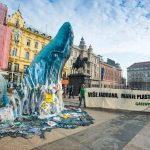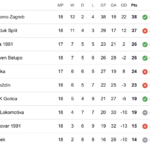ZAGREB, November 1, 2018 – World Wide Fund For Nature (WWF) Adria has warned that excessive exploitation and industry are the biggest causes of the loss of biodiversity, and the situation in Croatia is similar, although not as alarming as in some other parts of the world.
In our region, the state of nature is not completely alarming but public management of natural resources is disastrous, often starting with a good idea and ending with poor implementation, WWF Adria says, citing as an example Croatia’s Hunting Act.
According to the WWF’s Living Planet Report 2018, human activity is felt on 75% of the Earth’s surface. Current trends suggest that by 2050 less than 10% of the Earth’s surface will remain without human activity. Wildlife accounts for less than 5% of the living planet whereas humans and domestic animals, mainly for human consumption, account for 96%.
In recent history, the lynx and the wolf were almost extinct in Croatia and only the bear population is growing. As many as 93% of estimated fish stocks in the Mediterranean are overfished and the situation in the Adriatic is very similar. This is a major threat to biodiversity.
One in ten fish species is risking extinction due to the construction of the hydro-energy infrastructure, which WWF Adria says is mainly unnecessary as it accounts for less than 5% of the total electricity produced.
The incentive system in the energy sector is no help as it provides for spending taxpayers’ money on the destruction of the basic life resource, on which citizens have no opportunity to decide, WWF Adria says. “In Croatia, we use nearly two planets-worth of resources a year, which is terrifying. We must find a better model of using natural resources and agree on how we can live in harmony with nature, on which we depend,” says Andrea Stefan of WWF Adria.
If you want to read more about Croatia’s nature and environment, click here.








